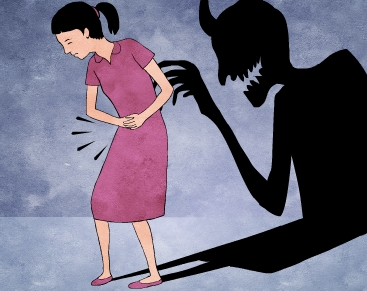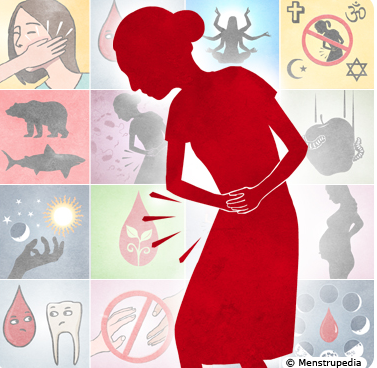What are menstrual myths? Menstruation was a mystery before science could explain it. So, a lot of different ideas and beliefs were created to explain periods in ancient societies and cultures. Many such ideas and beliefs have been proven wrong by Science, but they are still followed in current societies. We call these ideas menstrual myths.
These myths tend to suggest that menstruation is a disease or a curse and it leads up to beliefs like a woman’s body is polluted when she is experiencing periods. Such beliefs cause discrimination against women and at times, can lower your self-esteem and opportunities for growth. We find this situation to be a problem for a society in general because women are the ‘better half’ of every society.
Scientific information that connected menstruation with ovulation was a mid-18th century discovery. Before this time, most explanations of periods were based on observations. These observations such as blood flow from the vagina and pain because of abdominal cramps during periods were explained differently in different ancient societies. In some cases, blood represented life and fertility while in others, blood and pain represented danger that must be paid proper attention to.
The continuation of these different ways of ancient thinking in the absence of scientific information in our current societies causes menstrual myths. Talking about periods is still treated as a taboo in many societies. There is a lack of awareness and information about it. So, these myths continue to live on and are not questioned from one generation to another.
The first step in getting rid of menstrual myths is to talk about them. It is a good idea to ask if there is any scientific basis to what you’re told about your periods. Once you are aware and capable of separating a myth from scientific fact, you can also help others by giving them right information.
Discover more articles about menstruation :
- What are periods ?
- The unspeakable truth about menstruation
- Menstruation: “what is so gross about it?”
- How important is it for a girl and woman to be aware of her body ?
For more information check-out : www.menstrupedia.fr












